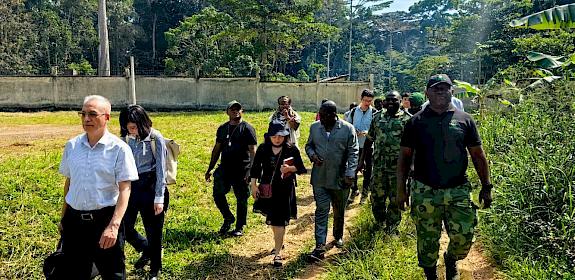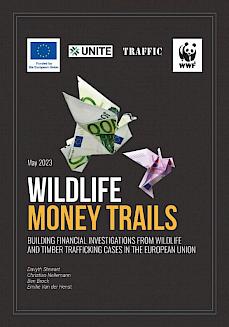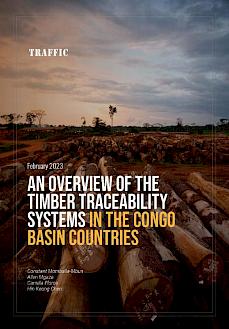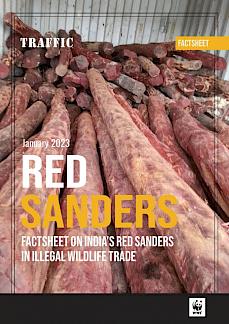
Aerial view of rainforest in Sumutra, Indonesia © Neil Ever Osborne / WWF-US
i
toward sustainable timber trade in Asia Pacific
The Responsible Asia Forestry and Trade (RAFT) project is a collaborative approach towards sustainable forest management and timber trade.
RAFT is a partnership of seven leading organisations, working together to build the capacity of countries, businesses, and communities in Asia Pacific to practice legal and sustainable forest management and trade, and counter the devastating effects of illegal logging and timber laundering.
only about 10%
of forest products in international trade are certified under an official certification scheme

It is imperative that all links in international timber supply chains take appropriate measures to keep illegal timber out the global marketplace
Chen Hin Keong, TRAFFIC's Timber trade Programme Leader
a world awash with timber
Timber is the most valuable wildlife commodity in trade. Yet, due to the complexity of global supply chains and the difficulties of distinguishing between certain species, it is also one of the most illegally exploited ones.
Many of Asia Pacific's rainforests are facing an illegal logging crisis. Shady businesses in China, Viet Nam, Malaysia, Indonesia, and beyond exploit legislative and enforcement weaknesses to illegally fell and export protected species. As well as illegal logging, many businesses unknowingly break the law because of a lack of understanding. Increased enforcement, regulation, and training is needed to tackle the issue holistically and turn the tide for Asia Pacific's rainforests.
Truck bringing logs to a dumping ground in Sabah, Malaysia © Sylvia Jane Yorath / WWF
i
our objectives and priorities
trading within the law
TRAFFIC regularly holds legality training workshops across Southeast Asia to help companies importing and exporting timber products adhere to national requirements.
This includes teaching businesses how to meet the standards of legislation including the US Lacey Act, EU Timber Regulation, and the Australian Illegal Logging Prohibition Act. National regulations such as these require timber suppliers to provide documentation relating to the origin and species being traded, as well as evidence that due care has been taken to avoid illegal timber in their supply chains. Although strong policies are critically important for mainstreaming responsible forestry and trade, their is often a gap between such policy and its implementation.
We are helping stakeholders ensure adherence to the law through workshops and developing training materials, including via our "Common Legality Framework" – a simple checklist developed to enable governments and companies access and understand relevant aspects of the laws and obligations that affect forestry operations and trade.
Logging trucks transporting timber from the last remaining forest in Sichuan, China © John E. Newby / WWF
i
training law enforcement
Timber identification, particularly when in various stages of processing, is a challenging task at the best of times. The difficulty in telling the difference between legal and illegal species is a major enabler of illegal timber trade.
Under the RAFT project we've been training Customs and Forestry officials in species identification techniques, as well as ways to help increase their understanding for legal timber trade. We're running workshops and training sessions to help arm officials on the front line with the tools and knowledge necessary to stamp out illegal timber from international supply chains.
A board production factory near Qinzhou, Guangxi, China © Theodore Kaye / WWF China
i
related reports to TIMBER TRADE
Explore the latest publications, reports and papers from TRAFFIC related to timber trade.
Visit our resource library for the full TRAFFIC publication archive.
the partnership








